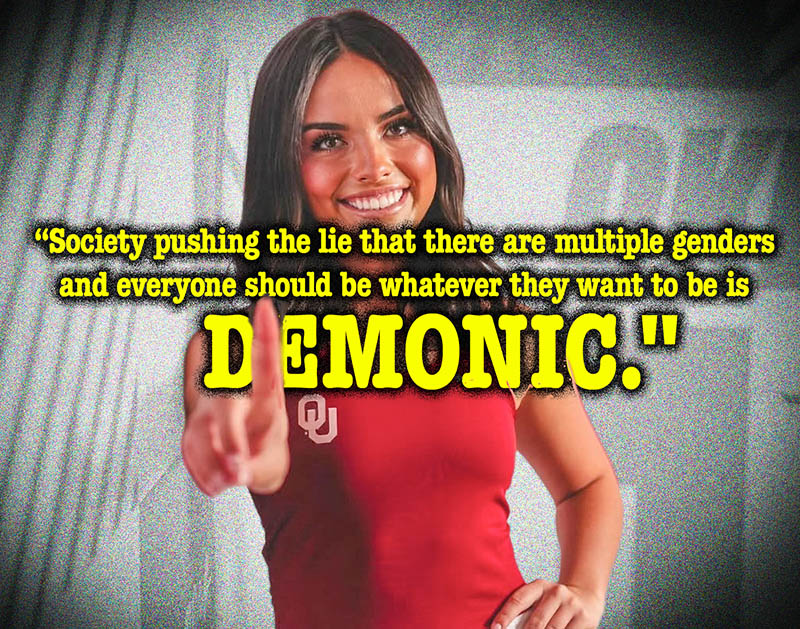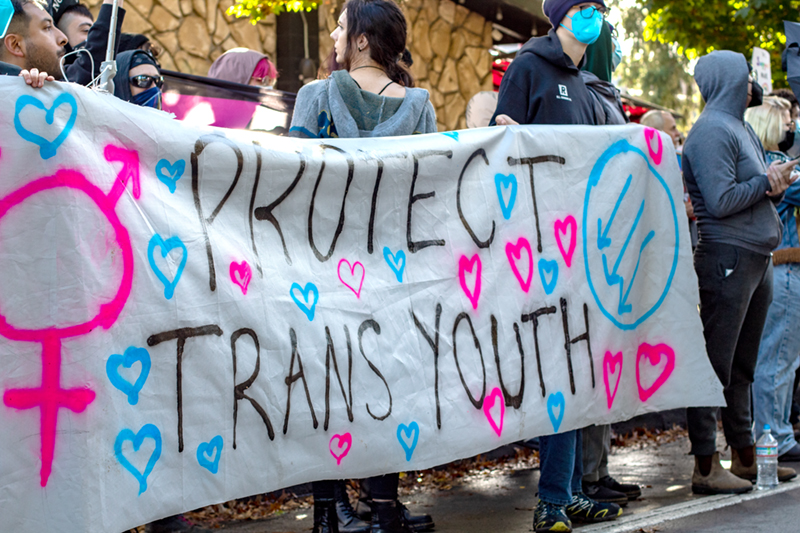South Dakota Gov. Kristi Noem signs religious refusal bill allowing denials of service to LGBTQ people
Law makes South Dakota the first state to pass a major change to its RFRA law in the past five years.

South Dakota Gov. Kristin Noem (R) has signed a religious refusal bill that allows businesses to deny goods or services to LGBTQ people and others based on owners’ purported religious beliefs.
Under South Dakota’s religious refusal bill — one of 36 measures introduced in legislatures this year — state agencies and their employees, localities, or elected officials may not “substantially burden a person’s exercise of religion” unless doing so “is essential to further a compelling governmental interest and is the least restrictive means of furthering that compelling government interest.”
The bill also declares that religious conduct cannot be treated more restrictively than comparable secular conduct, even in cases where there is “alleged economic need or benefit.”
In non-legal speak, that means a business or individual, like a baker, a store owner, or an entity that has a contract with the state to provide services cannot be forced to violate their religious beliefs. Therefore, if they have beliefs opposing homosexuality, or sex outside a monogamous one man-one woman marriage, for example, they cannot be compelled to provide goods or services to an LGBTQ person or a same-sex couple.
The bill allows any person who feels their religious rights have been violated to sue the entities that sought to prohibit or restrict a business owner or individual from turning away LGBTQ people and others — say, a person who has premarital or extramarital sex — who do not conform to the owner’s personal religious beliefs or moral and ethical standards. The bill states that plaintiffs who sue are entitled to have the cost of their attorney’s fees covered if their claim is successful in court.
“Governor Kristi Noem is taking on the mantle then-Governor Pence assumed as the face of LGBTQ discrimination by signing the first so-called ‘Religious Freedom Restoration Act’ in six years,” Alphonso David, the president of the Human Rights Campaign, said in a statement. “While she may see discrimination as a path to the national far right spotlight, she should understand the damage she is doing to the state of South Dakota and LGBTQ people who are simply looking to live their lives free of fear and exclusion.
“South Dakotans believe in religious liberty and LGBTQ equality — those two values are not mutually exclusive,” added David. “Governor Noem is risking economic, legal, and reputational harm to South Dakota by signing a law that takes the state backwards, all while South Dakotans continue to suffer the severe consequences of her absolute failure to act to curb the COVID-19 pandemic in the state.”
The bill makes South Dakota the first state to pass a so-called “Religious Freedom Restoration Act” since Mississippi passed its own version of the law in 2016. A year prior, then-Indiana Gov. Mike Pence signed a religious refusal bill into law, but backlash, particularly from the business community, was so strong that Pence and Republican lawmakers were forced to amend the law to declare that it was not intended to condone discrimination. Right-wing groups then criticized Pence for buckling to pressure from the political left and criticism from the media.
Indiana’s bill was estimated to have cost the state nearly $60 million in lost revenue, with at least 12 conventions that had scheduled to be held in the state being canceled due to objections that the law actively discriminated against LGBTQ people. The state had to ultimately spend $365,000 of taxpayer money on a public relations firm to help control the damage caused by the hit to Indiana’s reputation.
See also: South Dakota lawmakers approve bill to ban transgender athletes from women’s sports
Voters also strongly disapproved of the law, particularly after the backlash, with 75% saying the RFRA law was bad for the state’s economy and 70% opposing the law. Pence’s approval ratings in the state tanked so badly that he decided not to run for re-election. It was being selected as Donald Trump’s running mate that ultimately saved his career — a position he was chosen for largely because of his appeal to social conservatives.
Rose Saxe, the deputy director of the American Civil Liberties Union’s LGBT & HIV Project, said South Dakota’s bill goes beyond traditional language about whether a law or government action poses a “substantial burden” to a person’s exercise of religion.
“This bill goes further to reach sort of the COVID situation, where there were concerns that houses of worship were being subject to government limitation on the number of people who could gather, and so they added in additional language that says that the government also can’t treat religious conduct more restrictive than any secular conduct ‘of reasonably comparable risk’ because of alleged economic need or benefit,” she told Metro Weekly in an interview.
“While we would agree that the government shouldn’t be treating religious conduct different than other forms of secular conduct, I think the question is sort of is: Is the risk really comparable and is the necessity of staying open the same?” Saxe said. “The implications to the first part, the sort of standard RFRA language, are similar to implications by other RFRA laws. So the concerns that they could be used to override civil rights protections, demand exceptions to licensing laws or other kinds of regulation, and put the government really in a bind of having to show that it has a compelling interest in the enforcement of the law in each particular instance, rather than sort of the ability to pay to generally apply its laws.”
Saxe noted that South Dakota’s RFRA law could potentially be used to argue against all types of government regulation or interference, such as criminal laws, child labor laws, or workplace safety regulations.
“This is changing the legal balancing test. It’s putting the thumb on the scale in favor of religious exercise, no matter what is on the other side. And it’s not saying that the religious claimant is always going to win,” she said. “But it is sort of making it easier to say that even where there’s a general law, I don’t have to follow it because of my religious beliefs. It won’t necessarily result in discrimination, but it will give people another tool, when there is a law that says you can’t discriminate, to allow them to say, ‘Well, I should get to.'”
Read more:
Support Metro Weekly’s Journalism
These are challenging times for news organizations. And yet it’s crucial we stay active and provide vital resources and information to both our local readers and the world. So won’t you please take a moment and consider supporting Metro Weekly with a membership? For as little as $5 a month, you can help ensure Metro Weekly magazine and MetroWeekly.com remain free, viable resources as we provide the best, most diverse, culturally-resonant LGBTQ coverage in both the D.C. region and around the world. Memberships come with exclusive perks and discounts, your own personal digital delivery of each week’s magazine (and an archive), access to our Member's Lounge when it launches this fall, and exclusive members-only items like Metro Weekly Membership Mugs and Tote Bags! Check out all our membership levels here and please join us today!




























You must be logged in to post a comment.